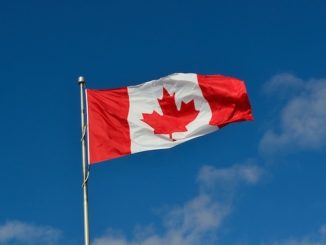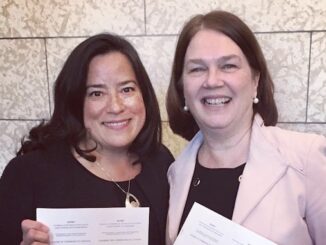As the federal election on September 20th nears, the race for MP rages on in 338 ridings across Canada. Throughout these ridings, passionate candidates debate and advocate for their views on the best plan for Canada’s future, with the environment, the economy, and the handling of COVID-19, the now 18-month pandemic, all on the line. Weaved throughout these fundamental themes are pushes for progressivism, conservatism, individual freedom, and having confidence in leadership.
In keeping with the average 18-month lifespan of a minority government, the Liberal party called for an election just shy of 2 years into their government.

To speak about the most pertinent issues on Canadian voters’ minds, the future of Canadian politics, their respective parties’ platforms, and the success of the last 6 years with the Liberal government, 2 candidates running against each other for MP of a riding in the GTA, Etobicoke-Lakeshore, were interviewed. Throughout these conversations, the Liberal, the Honourable James Maloney MP, pushed strongly for widespread traditional issues within Canadian politics and confidence in the incumbent government, while the NDP candidate, Sasha Kane, fought for radical change in response to population-specific disparities within Canada.
A main risk factor of lower voter turnout during this election is the lack of time for citizens to learn about each candidate and their platform given the short election period. In the 2019 federal election, Ms. Kane noted that there appeared to be far more time to converse with constituents, while she feels that the fast pace of this election has not allowed for her to meet as many people as she would like to. However, on the contrary, Mr. Maloney would argue that the illusion of a longer election period in previous years only existed due to the fact that a larger majority of citizens were aware that it was an election year given the 4-year duration of the government, and thus campaigning may have started slightly earlier. “Every election is fast-paced because you’re out on the ground, running around and meeting people”, he stated in response to questioning about the particular brevity of this one. He also defended that “this election should not come as a surprise [given the average 18-month duration of a minority government] for people who have been following the media”. However, this begs the question, that for those in the country who are less politically oriented, how will this timeline affect their engagement, as well as their cooperation with the incumbent’s calling of an election?
Unlike other shorter-notice elections, however, there is a factor at play that has the potential to resonate with the less politically apt population, or even those who might be inclined to believe that the Liberals are trying to rush an election for personal gain. This factor of course, has been the COVID-19 pandemic, whose infection rates are on the rise again. Due to the Liberals’ minority government, had they returned to resume government in September, it is reasonable to suspect that the opposition parties would have defeated the government, leading to an election in mid to late fall when it would likely be less safe to conduct one due to the projected increase in cases. By calling for an election slightly earlier in the year, voter education and engagement may be improved as the warmer season allows for constituents and candidates to meet in larger groups outdoors, hold events, knock on more doors, and most importantly, vote. Thus, by holding the election now, while it is sooner than expected and seemingly rushed, it will result in the most engaging and safe election possible. Though some parties maintain the belief that holding an election now might result in older populations “not voting as much because they may not feel comfortable enough to go out with Covid”, as Ms. Kane observed, as well as a closing of polling stations within churches and schools, there does not appear to be a more effective time to hold this election, unless voting and campaigning were to be moved fully online, which may compromise engagement in a much larger portion of the older population, as well as voter fraud and security.
There also appears to be a large disparity not only between which issues both parties focus on, but also surrounding their approach to change within these issues. During a conversation about the issues at stake for Canadians during this election, Mr. Maloney placed a heavy emphasis on the overarching issues that may come as no surprise, such as the pandemic and the economy, specifically how it pertains to recovery from the pandemic. He said, “we have to make sure that people are able to keep their jobs or get their jobs back, and that businesses are able to keep running so that the economy keeps moving. With regards to health and safety, everybody realizes that the pandemic’s not over, kids are going back to school, parents are nervous, everybody’s concerned about a fourth wave, and the best way to deal with this going forward is making sure that everybody gets vaccinated.” It became clear that the Liberal party’s platform is one that has remained fairly noncontroversial or divisive, as well as similar between elections, with 3 reliable pillars being the climate, the economy, and better healthcare. Mr. Maloney even admitted to the issues being similar to those of 2019 with magnification in severity: “There’s a lot of important issues that have become significantly more important due to Covid since the last election”.
One main theme that resurfaced time and time again, appeared to be a reassurance of the success of the status quo. Throughout this campaign, the Liberals have worked a great deal to gain confidence amongst Canadian voters, using debate opportunities to remind them of their accomplishments within the last 6 years, and how the country and Liberal MPs’ respective ridings have improved. With regards to the Liberal party’s handling of Indigenous communities, Mr. Maloney said, “Indigenous communities continue to be a big priority for our government, and we’ve put our work where our talk is. Perry Bellegarde, the outgoing chief of the assembly of the First Nations for 10 years, says that this government has done more in this area than any other government in Canadian history.” This type of lauding of the last 6 years points to the idea that Liberals themselves place less significance on change, or at least, less than their progressive opponents, and that they are more focused towards improvement. It also shows their belief that their plans have provided satisfaction to citizens thus far, as Mr. Maloney pointed to an example that he observed throughout the pandemic, saying, “some of the programs that we implemented to help small business through this literally saved them. They talk about the rent subsidy and the wage subsidy, a lot of those small businesses might not be here today without those programs. I think people are generally pleased with the way the federal government has responded to the pandemic and the programs we implemented to allow people to continue. Sure, we didn’t get everything perfect, I’m the first one to admit that, but we did a really good job.”

However, the NDP seem to press the Liberals on their more general issues, seeking radical changes within specific sectors of those issues. Of course, the issue that arises when we ponder the radical changes proposed, becomes if this is the right type of change and if it will improve the status quo. Unlike the Liberals, the NDPs have never been elected to parliament to form a federal government, and thus have no previous work to defend, leaving them tending to find fault in their opposing parties’ platforms in order to shape their own while having little history to receive criticism on. When asked about her and her party’s main platform focus, Ms. Kane was quick to bring up inconsistencies within the Conservative party including anti-abortion laws and conscience rights, as well as environmental unfulfilled promises of the last 6 years with the Liberals, saying, “I know that Erin O’Toole said that he is pro-choice and that abortions should remain available, but then he also says that he wants to defend the conscience rights of healthcare workers. To me, that just sounds like another way to restrict access to abortions to women”. Despite the Liberals’ environmental plan getting top marks from Simon Fraser University’s school of resource and environmental management’s Mark Jaccard and Climate scientist and UVIC Professor Andrew Weaver, Kane and the NDP believe more needs to be done. “when it comes to the Liberal party, I think the main issue is the environment because they claim to care about the environment when in reality they have continued to not meet the Paris agreement, and they bought a pipeline.” The Paris Agreement targets are set for 2030.
In addition to pressing their opponents on the environment and anti-abortion laws, the NDPs place a strong emphasis on affordable housing and affordable social programming in general, specifically for millennials and young adults struggling after post-secondary. “Right now we need immediate rent relief before the end of the year, and making affordable housing is so important because housing is a human right, and right now the federal government defines affordable housing as less than 30% of household income pretax. Increasing affordable housing presents an opportunity for people to live in the city as well as build green housing, and build communities through social programs like free summer camps, daycare, therapy, and family services”, Ms. Kane pledged. By continuing to zero in on specific areas of larger issues and propose thorough but often radical solutions, the NDP seems to garner strong support from those who they target, but unlike the Liberals, create controversy by stirring up more opposition from those who would bear the brunt of said changes, such as those in the fossil fuels industry, supporters of healthcare workers’ freedoms such as conscience rights, and of course, high taxpayers.
A large driver of the divergence between the aims and views of the 2 parties is the age demographic, both the ages which they target and their ages themselves. It’s no secret that Liberals tend to win over older voters while NDPs younger voters, but the average Liberal MP candidate is actually 13 years older than the average NDP MP Candidate across the major cities in Canada. Both of these qualities speak to different strengths, with Liberals leaning towards more experienced candidates who know their ridings more thoroughly. As Mr. Moloney said, “I’m a local guy, I grew up in Etobicoke-lakeshore, I still live in Etobicoke-lakeshore. I’ve lived in this riding since I was 11 years old, I went to grade school and high school here, and that makes this job something very special to me, it’s an honour to represent a community that I’ve been a part of for so long. I want people to know that they have a strong local voice to understand the riding”, attesting to his insights into the evolution of his riding and Canadian voters’ needs as a whole. On the flip side, Ms. Kane is 23 years old, just out of post-secondary. This reliance on youth can be very beneficial, as it can invite fresh perspectives, idealistic thinking, and greater physical and mental agility in order to perform the job. Ms. Kane spoke to her party’s goal of empowering the next generation, saying, “we need to tell them their vote matters, tell them that they’re the future of this country, they need to be heard, what they say is important.” However, it can also invite naïveté, as well as an inability to commit a sufficient amount of time to the job as younger adults tend to be less financially established. Ms. Kane mentioned earlier in the interview that she had not been able to canvas as much as she would have liked to, saying, “I work full-time, so I can’t dedicate as much time as I would like to going out and meeting people and answering their questions”.
The difference in age demographics surely impacts election results, but it also impacts the aforementioned issue of the way to go about change, and even more broadly, the parties’ views of the importance of democracy. Throughout the NDP platform as well as during the interview, reformist changes such as the criminalization of conversion therapy, universal pharmacare and dental care, lower climate targets even given Canada’s inability to meet the previous ones, and electoral reform were all mentioned. Ms. Kane also referenced a debate with her opponents, saying that she experienced a sense of urgency about the incumbent winning the riding again, taking issue that, “he said that Etobicoke is doing quite well, but you can see that people aren’t doing well. Like, I’m not doing well, my friends aren’t doing well [financially].” Meanwhile, when asked the same question, Mr. Maloney said, “When I go up to somebody’s door, I tell them, ‘look, you really should go vote, even if you don’t vote for me, because the government is the most important institution in our lives.’”
This all ties into say that the Liberals are a party that more strongly values experience, knowing your community, and focusing on issues to appease the whole of Canada, even if that diplomatic nature comes at the expense of full execution. Meanwhile, the NDPs are a party that looks to youth to lead the way, placing an emphasis on the future with a plan that they carry with the utmost confidence.
As you cast your ballots this September, looking into the future and debating the issues that are most pertinent to our nation at this point in time, we must ask ourselves a question: Do we trust the status quo and its government’s experience enough to allow them to guide us through this next term with improvements, valuing its ability to provide reliability and stability for a large cross-section of our population, or are we willing to take a gamble for a radical change, in hopes that it will bring prosperity and innovation to strengthen our soon to be young adult population, providing them with the resources to support our country.
In the long run, whomever we are led by, whichever strides we as a nation chose to take to tackle the issues of our past, present, and future, the democracy in our free, Canadian society, is the most important factor in our freedom, far exceeding the importance of one party being in power or their platform being implemented. “The government was around long before us and it’s gonna be around long after us, so people need to participate and to vote”, said Mr. Maloney.




